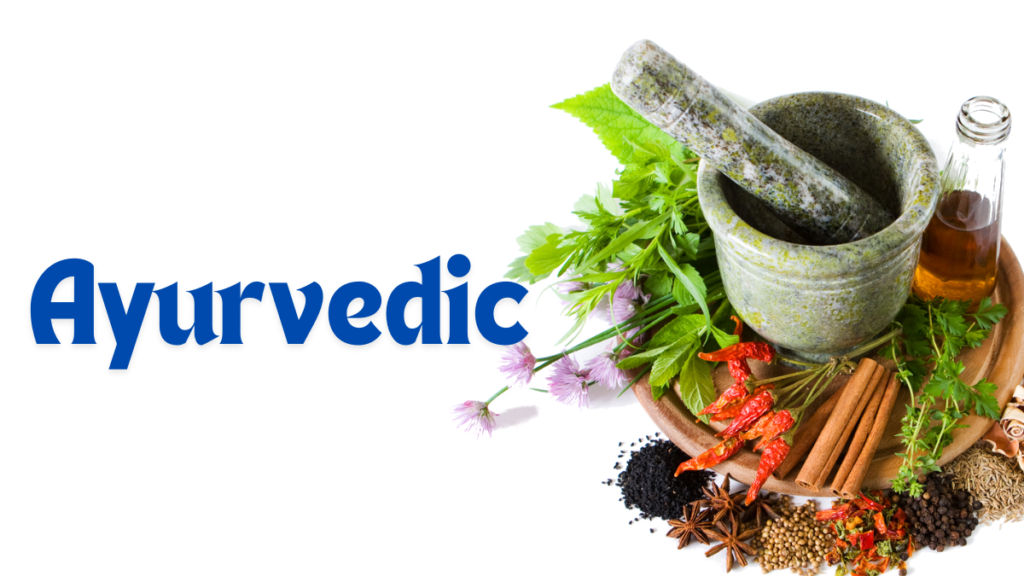Are you ready to transform your health and wellness routine using ancient Ayurvedic wisdom at WellHealth Ayurvedic Health Tips? WellHealth This comprehensive guide to Ayurvedic health tips will provide you with everything you need to know about the holistic approach of Ayurveda. From understanding your flaws to incorporating daily practices that boost your overall well-being, this post is designed to help you achieve balance and vitality.
What is Ayurvedic?

Ayurvedic, often referred to as the “science of life,” is an ancient system of medicine that originated in India thousands of years ago. It focuses on promoting health through the balance of mind, body, and spirit. Unlike Western medicine, which often treats symptoms, Ayurvedic aims to address the root cause of health issues by restoring equilibrium.
The principles of Ayurvedic are deeply rooted in nature and the five elements—earth, water, fire, air, and ether. These elements combine to form three primary life forces or Doshas that influence our physical and mental constitution. By understanding and balancing these Doshas, we can lead a healthier and more harmonious life.
What are the Doshas in Ayurvedic?
In Ayurvedic, the three Doshas—Vata, Pitta, and Kapha—represent the fundamental energies in our body. Each person has a unique combination of these Doshas, which determines their constitution and influences their health, personality, and habits.

- Vata Dosha is composed of air and ether. It governs movement, including circulation, breath, and nerve impulses. Individuals with a dominant Vata Dosha are often energetic, creative, and quick-thinking but may struggle with anxiety and irregular digestion.
- Pitta Dosha is made up of fire and water. It controls metabolism, digestion, and body temperature. Pitta-dominant individuals are typically ambitious, focused, and prone to inflammation and digestive issues.
- Kapha Dosha consists of earth and water. It manages structure and stability, including muscles, bones, and immunity. People with a Kapha constitution are usually calm, nurturing, and may have a tendency toward weight gain and lethargy.
Understanding your dominant Dosha can help you tailor your lifestyle and dietary choices to achieve balance and optimal health.
WellHealth Ayurvedic Health Tips
Ready to incorporate Ayurveda into your daily routine? Here are nine effective WellHealth Ayurvedic health tips to get you started.

Morning Routine
WellHealth Ayurvedic health tips The first step in aligning principles is to start your day with a morning routine. After waking up, consider drinking a glass of warm water with lemon to kickstart your metabolism and flush out toxins. Begin by following this with a few minutes of meditation or deep breathing exercises to center your mind and prepare for the day ahead.
Include tongue scraping in your oral hygiene routine to remove bacteria and improve digestion. Finally, do some gentle yoga or stretching to wake up your body and increase circulation.
Balanced Diet
A balanced diet is fundamental to Ayurvedic health. Focus on including fresh vegetables and seasonal whole foods in your diet. Each dosha has specific dietary recommendations — Vata types favor warm, grounding foods, Pitta individuals benefit from cool, hydrating foods, and Kapha types thrive on light, spicy foods.
Try to eat more green vegetables, pay attention to hunger cues and avoid overeating. Include all six tastes – sweet, sour, salty, bitter, bitter and astringent – in your diet to meet your nutritional needs and maintain balance.
Herbal Teas
Herbal teas play a significant role in Ayurvedic, providing both health benefits and comfort. Different herbs can address specific imbalances in the Doshas. For example, ginger tea is excellent for Vata and Kapha types, while peppermint tea helps cool Pitta individuals.
Incorporate herbal teas into your daily routine to support digestion, improve immunity, and promote relaxation. Experiment with blends like turmeric, ashwagandha, and tulsi to find what works best for you.
Mindful Eating
Mindful eating is essential in Ayurvedic. It encourages you to be present and fully engaged during meals. This practice not only enhances digestion but also helps you develop a deeper connection with your food and body.
Avoid distractions like phones or TV while eating. Chew your food thoroughly and savor each bite. Pay attention to the flavors, textures, and how the food makes you feel. This mindful approach can lead to better digestion and a more satisfying eating experience.
Regular Exercise
Regular exercise is crucial for maintaining balance and vitality in Ayurvedic. Choose activities that align with your Dosha to maximize benefits. Vata types should focus on gentle, grounding exercises like walking or yoga. Pitta individuals can engage in moderate-intensity activities such as swimming or cycling, while Kapha types benefit from vigorous workouts like running or aerobics.
Exercise not only strengthens the body but also enhances mental clarity and emotional well-being. Aim for at least 30 minutes of physical activity most days of the week.
Adequate Rest
Rest is a vital component of Ayurvedic health. Quality sleep allows the body to repair and rejuvenate, maintaining overall balance. Establish a consistent sleep routine by going to bed and waking up at the same time daily.
Create a calming bedtime ritual by reducing screen time, drinking herbal tea, and practicing relaxation techniques like meditation or deep breathing. Aim for 7-8 hours of restful sleep each night to promote optimal health.
Oil Massage
Oil massage, or Abhyanga, is a traditional Ayurvedic practice that nourishes the skin, improves circulation, and calms the mind. Use warm, natural oils like sesame or coconut, and massage your body in long, sweeping motions.
Performing self-massage before your shower can help detoxify the body, relieve stress, and enhance overall well-being. Customize the oil choice based on your Dosha to maximize benefits—Vata types benefit from warming oils, Pitta from cooling oils, and Kapha from stimulating oils.
Stress Management
Effective stress management is essential for maintaining balance in Ayurvedic. Incorporate practices like meditation, yoga, and deep breathing exercises into your daily routine to reduce stress and promote mental clarity.
Engage in activities that bring you joy and relaxation, whether it’s spending time in nature, reading, or pursuing a hobby. Prioritizing self-care and stress management can significantly impact your overall health and well-being.
Ayurvedic Herbs and Supplements
Ayurvedic herbs and supplements can support your health and address specific imbalances. Popular herbs like ashwagandha, turmeric, and triphala offer various benefits, from boosting immunity to enhancing digestion.
Consult with an Ayurvedic practitioner to determine the best herbs and supplements for your needs. Incorporating these natural remedies into your routine can help you achieve optimal health and balance.
Interesting Facts About Ayurvedic
Ayurvedic is full of fascinating aspects that might surprise you. Here are a few intriguing facts:
Historical Significance
Ayurvedic is one of the oldest medical systems still practiced today. Its comprehensive approach includes surgical techniques, pharmacology, and even toxicology, showcasing its extensive historical roots.
Global Influence
While rooted in Indian culture, Ayurvedic practices have influenced other traditional medicinal systems, including Traditional Chinese Medicine and Western herbal medicine. This cross-cultural impact underscores its universal relevance.
Science-Backed Benefits
Recent research supports many Ayurvedic principles. Studies have shown that Ayurvedic practices can effectively manage chronic conditions like arthritis, diabetes, and stress, proving its timeless wisdom.
Conclusion
Ayurvedic offers a holistic approach to health and wellness, emphasizing the importance of balance and harmony in all aspects of life. By incorporating these WellHealth Ayurvedic health tips into your daily routine, you can boost your physical, mental and emotional well-being.
Remember that your journey to optimal health is very personal. Take the time to understand your unique constitution and adjust as needed. For personalized guidance, consider booking a consultation with an Ayurvedic practitioner who can help you tailor these practices to your specific needs.
Start your Ayurvedic wellness journey today with WellHealth Ayurvedic health tips.


